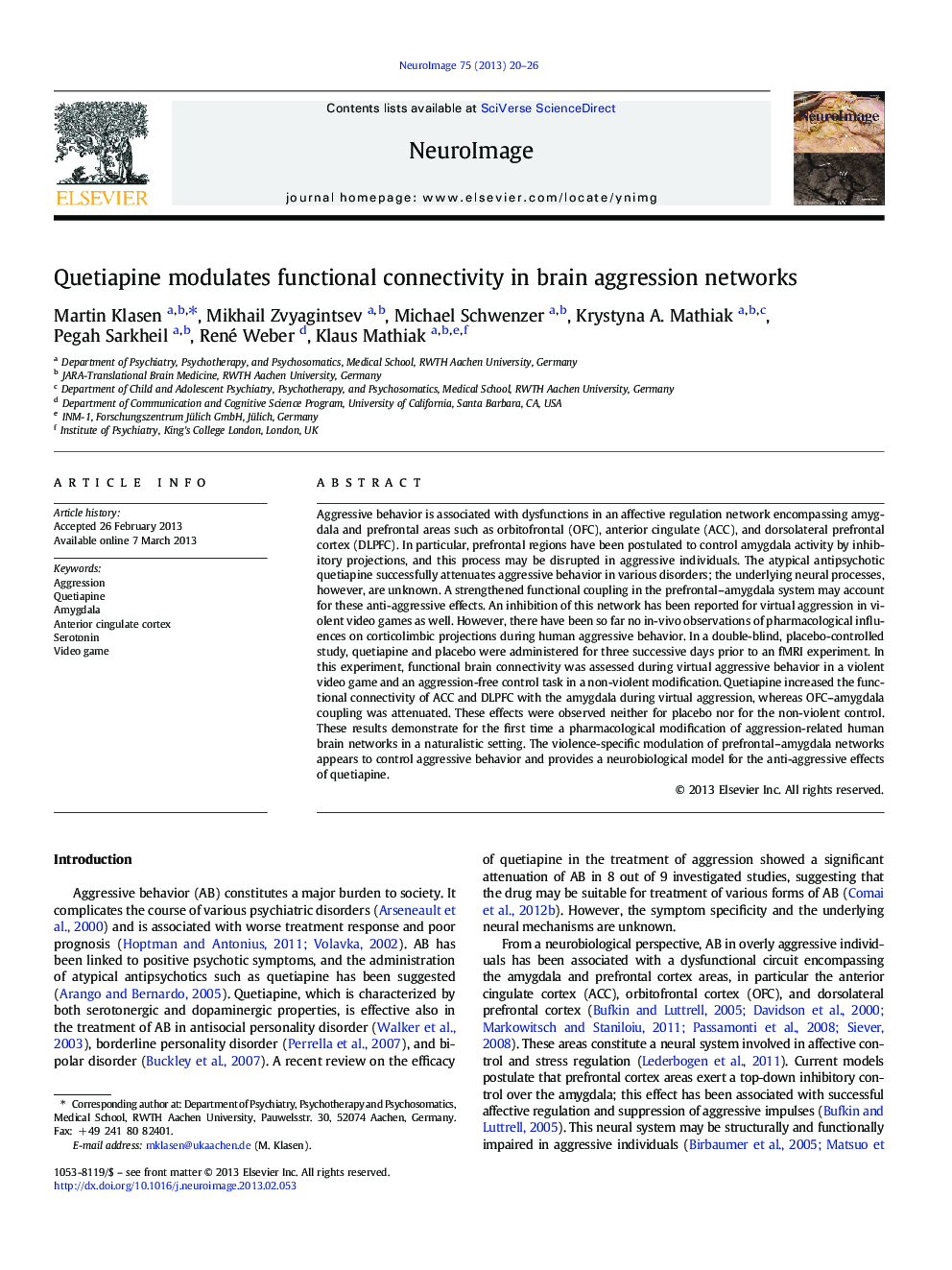| کد مقاله | کد نشریه | سال انتشار | مقاله انگلیسی | نسخه تمام متن |
|---|---|---|---|---|
| 6029490 | 1580929 | 2013 | 7 صفحه PDF | دانلود رایگان |
عنوان انگلیسی مقاله ISI
Quetiapine modulates functional connectivity in brain aggression networks
ترجمه فارسی عنوان
کوتیپین مدولا قابلیت اتصال در شبکه های تهاجمی مغز است
دانلود مقاله + سفارش ترجمه
دانلود مقاله ISI انگلیسی
رایگان برای ایرانیان
کلمات کلیدی
پرخاشگری کتیاپین، آمیگدالا، قشر مفاصل قدامی قدامی سروتونین، بازی ویدیویی،
موضوعات مرتبط
علوم زیستی و بیوفناوری
علم عصب شناسی
علوم اعصاب شناختی
چکیده انگلیسی
Aggressive behavior is associated with dysfunctions in an affective regulation network encompassing amygdala and prefrontal areas such as orbitofrontal (OFC), anterior cingulate (ACC), and dorsolateral prefrontal cortex (DLPFC). In particular, prefrontal regions have been postulated to control amygdala activity by inhibitory projections, and this process may be disrupted in aggressive individuals. The atypical antipsychotic quetiapine successfully attenuates aggressive behavior in various disorders; the underlying neural processes, however, are unknown. A strengthened functional coupling in the prefrontal-amygdala system may account for these anti-aggressive effects. An inhibition of this network has been reported for virtual aggression in violent video games as well. However, there have been so far no in-vivo observations of pharmacological influences on corticolimbic projections during human aggressive behavior. In a double-blind, placebo-controlled study, quetiapine and placebo were administered for three successive days prior to an fMRI experiment. In this experiment, functional brain connectivity was assessed during virtual aggressive behavior in a violent video game and an aggression-free control task in a non-violent modification. Quetiapine increased the functional connectivity of ACC and DLPFC with the amygdala during virtual aggression, whereas OFC-amygdala coupling was attenuated. These effects were observed neither for placebo nor for the non-violent control. These results demonstrate for the first time a pharmacological modification of aggression-related human brain networks in a naturalistic setting. The violence-specific modulation of prefrontal-amygdala networks appears to control aggressive behavior and provides a neurobiological model for the anti-aggressive effects of quetiapine.
ناشر
Database: Elsevier - ScienceDirect (ساینس دایرکت)
Journal: NeuroImage - Volume 75, 15 July 2013, Pages 20-26
Journal: NeuroImage - Volume 75, 15 July 2013, Pages 20-26
نویسندگان
Martin Klasen, Mikhail Zvyagintsev, Michael Schwenzer, Krystyna A. Mathiak, Pegah Sarkheil, René Weber, Klaus Mathiak,
